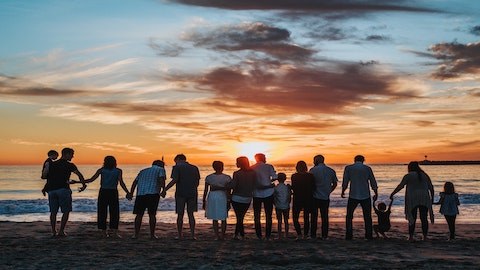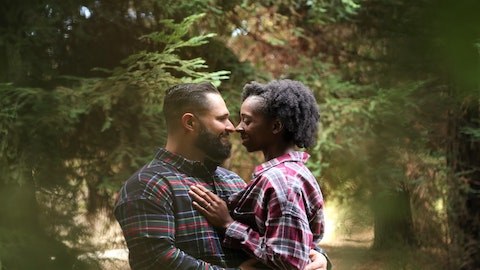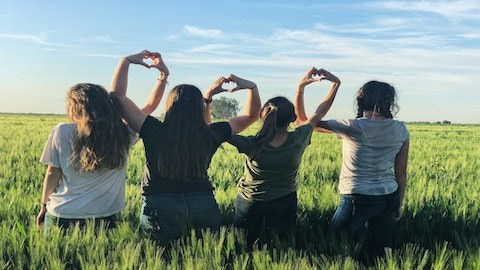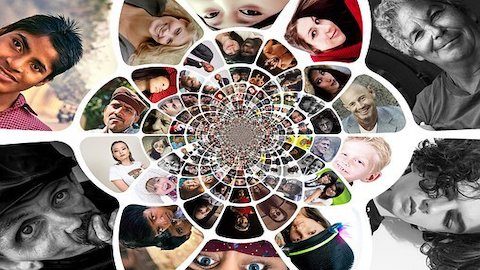Family Ties

What makes a family? It depends on where, when and who you ask.
“Family is not an important thing. It’s everything.” Actor Michael J. Fox knows a thing or two about the meaning of family. Diagnosed with Parkinson’s disease in 1991, Fox describes his wife Tracy as a “rock that keeps on rolling,” sticking with him through all the challenges of life with Parkinson’s and providing a strong foundation for their four children to grow and thrive (Tailor, 2020).
Across time and place, human beings have shared Fox’s sentiment about the value of family in good times and bad. But our ideas about what makes a family have varied considerably. Many Americans think of the “traditional” family as a husband + wife + children living together in a home. That’s a picture commonly seen on TV--think The Waltons or Married with Children. But the so-called "nuclear" family is actually a relatively recent development. In other cultures—and here in the U.S.—there have always been other family arrangements, such as multiple generations living together under one roof. Even television has portrayed a more nuanced reality, from All in the Family to Fresh off the Boat.

Our definition of “family” has also broadened in recent decades, allowing for more flexible and dynamic understandings of what a family looks like. For instance, in 1967, the Supreme Court struck down state laws that prohibited people from marrying persons of a different race, allowing racially mixed families to take root.
It has also become more common for single parents to raise children or for blended families from different marriages to come together. Adoption provides an avenue for creating family, while single individuals and others draw on close friendships to create “families of choice” that are every bit as meaningful as families based on biological relationships.

Families of Choice
Of course, families of all kinds can be places of stress and frustration—even alienation. But at their best, they are sources of love and affection, sustenance and belonging. For LGBTQ+ persons, families of origin have not always been welcoming—and traditional avenues for creating family, such as marriage, have (up until recently) been unavailable. So they have long created families of choice. Surrounding themselves with friends, allies and loved ones, LGBTQ+ persons have drawn strength, affirmed their identities and shared the joys and sorrows of life with families of their own making.
These tight-knit communities have also been an important source of individual and collective resilience in the face of prejudice and discrimination, as well as a wellspring of action and advocacy on behalf of LGBTQ+ rights. This isn’t to say that LGBTQ+ persons are less diverse or contentious than any other human collective. What we call the “LGBTQ+ community” is in fact composed of thousands of overlapping and diverging communities. Like any large family, the LGBTQ+ community is sometimes argumentative, even disjointed. But it is also thriving and having an impact like never before.

Marriage and children
One of the most impactful victories won by the LGBTQ+ community and allies in recent years has been the achievement of marriage equality. While same-sex love and relationships have occurred throughout history, gay and lesbian couples now have the same recognition, rights and privileges that other couples have. What’s more, they enjoy the support of a majority of Americans—according to recent polling, 2 out of 3 Americans (67%) now believe that the law should recognize same-sex marriage as valid, a dramatic increase over just a decade ago (McCarthy, 2020).
Increasing numbers of gay and lesbian couples are also raising children, and the overwhelming scholarly consensus is that children raised by same-sex couples are faring well, with equivalent outcomes to other children (Cornell University, 2017). It's not just gay and lesbian couples who are benefitting from LGBTQ+ advocacy and shifting public opinion. Persons across the full spectrum of gender and sexual identities, including transgender individuals, are able to be more open about themselves and their loved ones than ever before.
That’s not to say that there aren’t still challenges ahead; change is always uneven, progress can be rolled back, and many within the LGBTQ+ community still face serious risks, including physical harm, just for being themselves. That’s why families of choice—members of the LGBTQ+ community, loved ones, friends and allies—remain absolutely vital.

'Love is Love'
We still have a way to go, but we’ve traveled a good distance from Father Knows Best to Modern Family and The Fosters. Over the years, our understanding of what constitutes a family has steadily evolved to incorporate a broad diversity of groupings.
We have the LGBTQ+ community to thank for that, among others. Marginalized in more conventional family settings, members of the LGBTQ+ community have been on the forefront of creating alternative family arrangements for decades, if not centuries. Their capacity to forge close-knit bonds of love and kinship has long nourished LGBTQ+ persons. But it has also served as a model for making and re-making families that sustain us all as we move through the vicissitudes of modern life.
“Love is love.” That’s something the LGBTQ+ community has always understood. Or as Jack Pearson of the hit television series This is Us recently put it, family is anyone who makes us feel like we’re home.
Welcome to the identiversity family.
About the author--Kathleen Clark is Chief Learning Officer of Identiversity Inc. She lives with her family in Charlotte, NC and writes widely on topics relating to diversity, equity and inclusion.
References:
Cornell University. (2017, December). What does the scholarly research say about the well-being of children with gay or lesbian parents? What We Know: The Public Policy Research Portal. https://whatweknow.inequality.cornell.edu/topics/lgbt-equality/what-does-the-scholarly-research-say-...
McCarthy, Justin. (2020, June 1). U.S. Support For Same-Sex Marriage Matches Record High. Gallup. https://news.gallup.com/poll/311672/support-sex-marriage-matches-record-high.aspx
Tailor, Leena. (2020, November 17). Michael J. Fox Says HIs Wife Tracy Has Remained His "Best Friend" for 32 Years (Exclusive). Entertainment Tonight (ET). https://www.etonline.com/michael-j-fox-says-his-wife-tracy-has-remained-his-best-friend-for-32-years...
